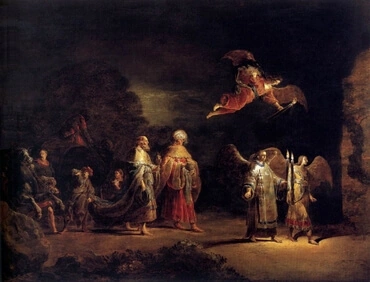1
The word that Jeremiah the prophet spake unto Baruch the son of Neriah, when he wrote these word in a book at the mouth of Jeremiah, in the fourth year of Jehoiakim the son of Josiah, king of Judah, saying,
2
Thus saith Jehovah, the God of Israel, unto thee, O Baruch:
3
Thou didst say, Woe is me now! for Jehovah hath added sorrow to my pain; I am weary with my groaning, and I find no rest.
4
Thus shalt thou say unto him, Thus saith Jehovah: Behold, that which I have built will I break down, and that which I have planted I will pluck up; and this in the whole land.
5
And seekest thou great things for thyself? seek them not; for, behold, I will bring evil upon all flesh, saith Jehovah; but thy life will I give unto thee for a prey in all places whither thou goest.







